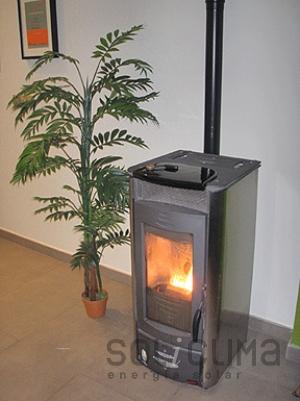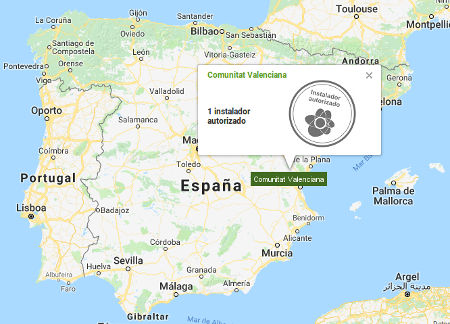Energía solar y eficiencia energética
Nuestros productos más demandados
Energía Solar Fotovoltaica , Aerotermia, Geotérmica, Suelo radiante y Reciclaje de aguas. Consulte todos nuestros productosInstaladores autorizados
tu instalador autorizado por Soliclima más cercano
Consulta nuestra red de instaladores autorizados mediante nuestro mapa interactivoServicio Técnico Energía solar y suelo radiante
Servicio de mantenimiento y reparación de energía solar, suelo radiante y aerotermia
Soliclima pone su experiencia de más de 25 años en el sector de la eficiencia energética y las energías renovablesExpertos en Energía Solar
Soliclima desarrolla, instala y mantiene proyectos basados en las energías renovables, como la energía solar, y en la eficiencia energética.
Nuestro profundo compromiso está con el desarrollo sostenible, y disponemos de un equipo de profesionales con una larga trayectoria a sus espaldas. Tanto en instalaciones de energía solar como biomasa y bomba de calor. Realizamos mantenimiento de placas solares para comunidades de vecinos y particulares
→ Los bosques tropicales se enfrentan a la "muerte masiva de las hojas" por el calentamiento global
→ Campeones del mundo en energía solar fotovoltaica: estos países son los que producen más energía solar
→ Heineken invertirá 25 millones de libras en un sistema de calor con bajas emisiones de carbono
→ Encuesta en el Reino Unido: un 61,5% de habitantes próximos a sitios solares apoya la energía solar
→ Las grandes bombas de calor transformarán las industrias que usan intensivamente gas en el Reino Unido
→ Las olas de calor contribuyen al aumento de los precios de la gasolina en EE.UU.
→ Después de años en segundo plano, las bombas de calor se generalizan con grandes ventas
 Barcelona: 931410439
Barcelona: 931410439



